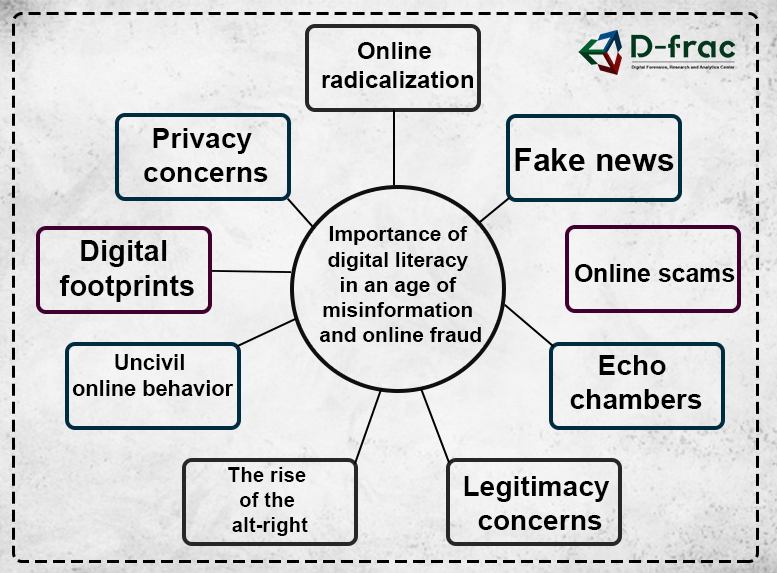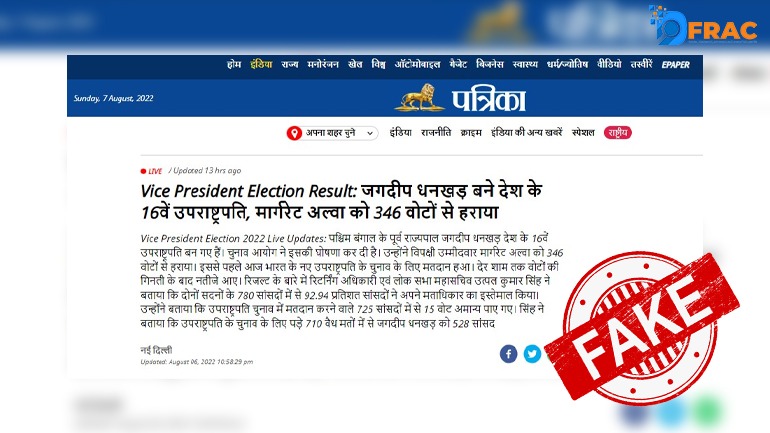Nisar Siddiqui
As the digital landscape becomes more complex and expansive day by day, it is also becoming more difficult to navigate and easier to manipulate, as is evident from many high-profile reports about the influence of “fake news” and Twitter bots. The ability to navigate this landscape effectively without succumbing to the pitfalls of media manipulation requires a multi-faceted skill set often referred to under the umbrella term digital literacy.
Digital literacy is more than the ability to identify misinformation or avoid bad guys online; it means being able to participate meaningfully in online communities, interpret the changing digital landscape, and unlock the power of the internet for good.
The need for digital literacy extends into multiple areas of life, including life away from the keyboard. Some key points to understand the importance of digital literacy are as follows:
1- Privacy concerns
As identity, personal information and accounts become more entangled with the web, the stakes become higher with regard to privacy. Hacking and doxing (the purposeful and often malicious reveal of someone’s personal information or images) are weaponized more frequently, and more of us are vulnerable as a result. Even legitimate commercial entities can legally share or sell personal information under certain circumstances, increasing the need for vigilance. Personal security now requires knowing how to protect against these vulnerabilities.
2- Digital footprints
Screenshots, check-ins, selfies and tagging are part of daily life for many students and adults. With such intense, sometimes involuntary, documentation flooding the digital landscape, online users must understand the consequences of what they share (or what is shared about them), often referred to as their digital footprint. Deleting a post or untagging a photo doesn’t erase online activity. Once words and images go online, they can have a lasting impact on everyone involved.
3- Uncivil online behavior
Some online communities have moderators or guidelines for participation, but many don’t. Online users need the tools to counter uncivil speech and behavior, and to understand the consequences of engaging in uncivil acts online, including bullying and hate speech.
4- Fake news
Online content producers are very good at figuring out what kinds of stories get clicks, allowing them to both capture public attention and sell profitable ad space. This ability to manipulate user behavior on the web has led to the spread of false and misleading information. Sometimes this information is posted accidentally, sometimes deliberately for profit, sometimes for attention, and sometimes it is used to promote a political agenda. Users need the skills to think critically about online sources and evaluate their reliability.
5- Online scams
Similar to the need to be able to evaluate online messaging and calls to action, users need to know enough to be wary of offers designed to exploit their financial trust or breach personal security.
6- Echo chambers
The market economy of the Internet pushes people into increasingly partisan and divided corners by exposing users to content that reinforces their existing beliefs. Users need skills to help them find different viewpoints and perspectives and to evaluate how their online behavior influences the information they receive. This skill is one of the most powerful tools we have to counter political polarization.
7- Legitimacy concerns
The online marketplace rewards popularity. News and content providers, search engines, social media sites and advertisers all want high numbers of views, and stories with an extreme partisan bent, humor or memes tend to spread or “go viral.” Content that gets clicked on, however, isn’t always accurate or high quality. Users need the skills to differentiate between the attention an item receives and the item’s actual merit.
8- The rise of the alt-right
The so-called alt-right’s recruitment strategy exposes a need to understand — and, particularly, to teach young people — how to recognize propaganda and hate speech, even when it is shrouded in humor, irony or pseudoscience. Other extremist groups that purposefully peddle false messages have already adopted the tactics of the alt-right, so the need to recognize its recruitment strategy is greater than ever.
9- Online radicalisation
With extreme ideologies readily present on the Internet, users need to be equipped with critical thinking and research skills that will keep them from falling down a rabbit hole of increasingly extreme and isolating content online. Students unable to distinguish well from bad information remain more vulnerable to recruitment by hate groups.





